IraqMap
April Iraqis have a fetish for pristine brand-new cars. That’s why car owners stick a piece of film under the fuel door of their car to prevent errant drops of gasoline from ruining the paint over time. 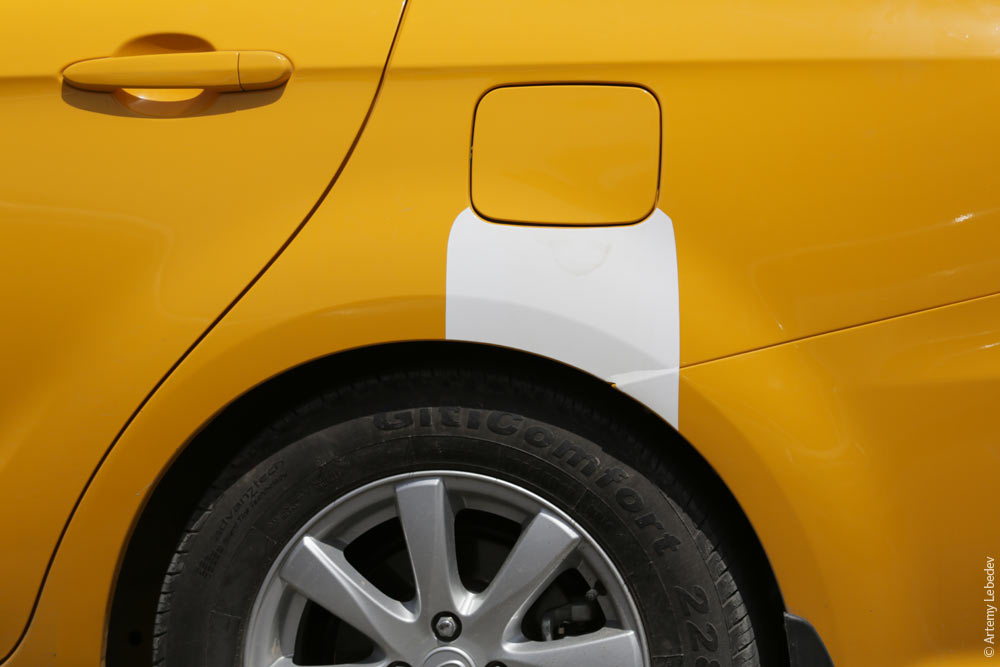 That’s why they protect car emblems and nameplates, stick little foam blocks on the doors (to avoid hitting adjacent parked cars), put protective film on door handles and bumpers. 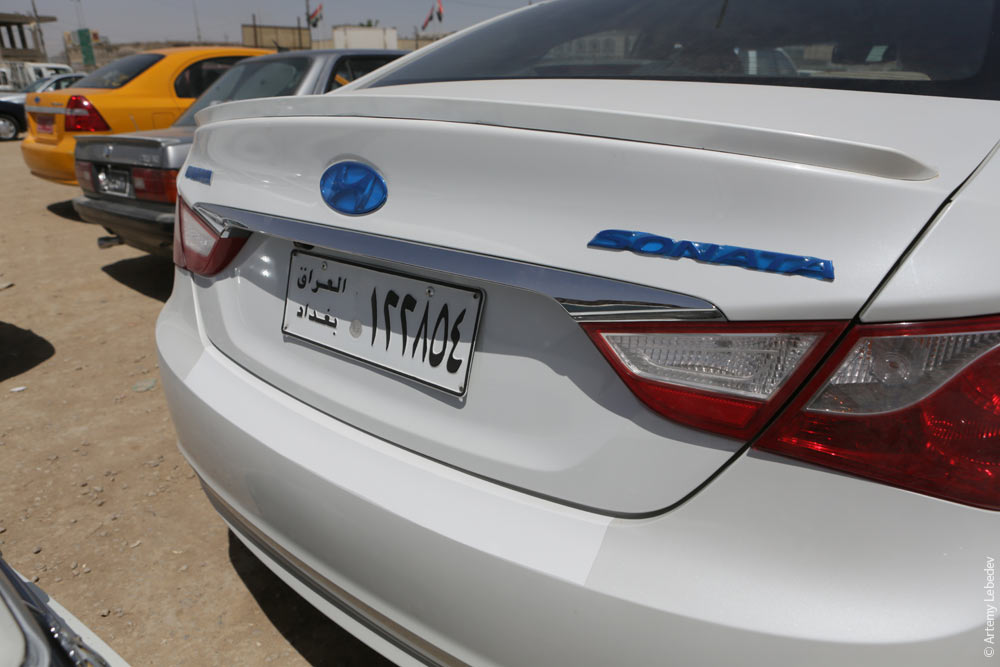 That’s why many people don’t get rid of the slips with bar codes and technical specs which dealerships put in car windows. These signify “brand new, just bought.” People drive around like this for years. 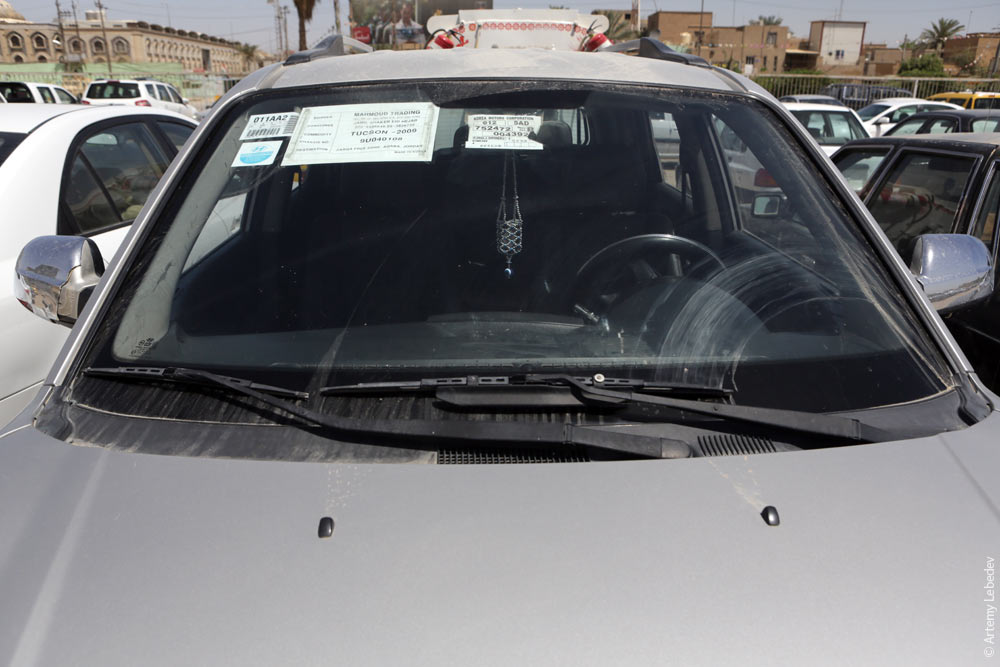 The license plates are quite varied. They’re often screwed on right over the old European or Chinese ones. 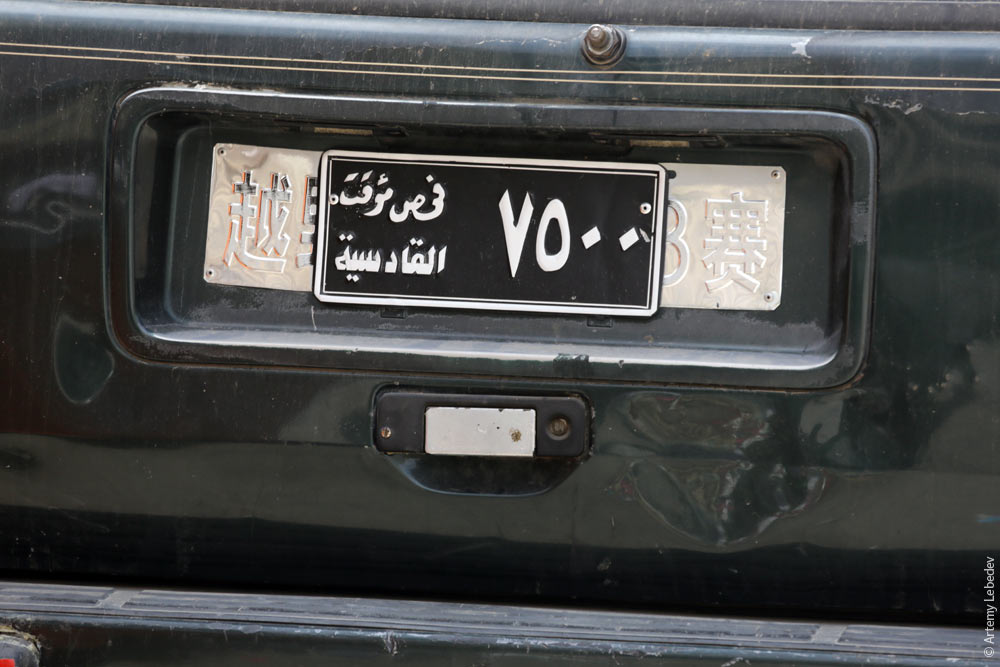 Buses aren’t used for municipal transportation in Iraq. At all. No one likes them and no one rides them. The couple that do exist run along intercity routes or bring in pilgrims from Iran. Everyone uses “Kia” minibus shuttles to get around instead. You’ll often see pictograms of a passenger with the word “Kia” stuck onto their windows. The minibus, meanwhile, could actually be a Nissan. 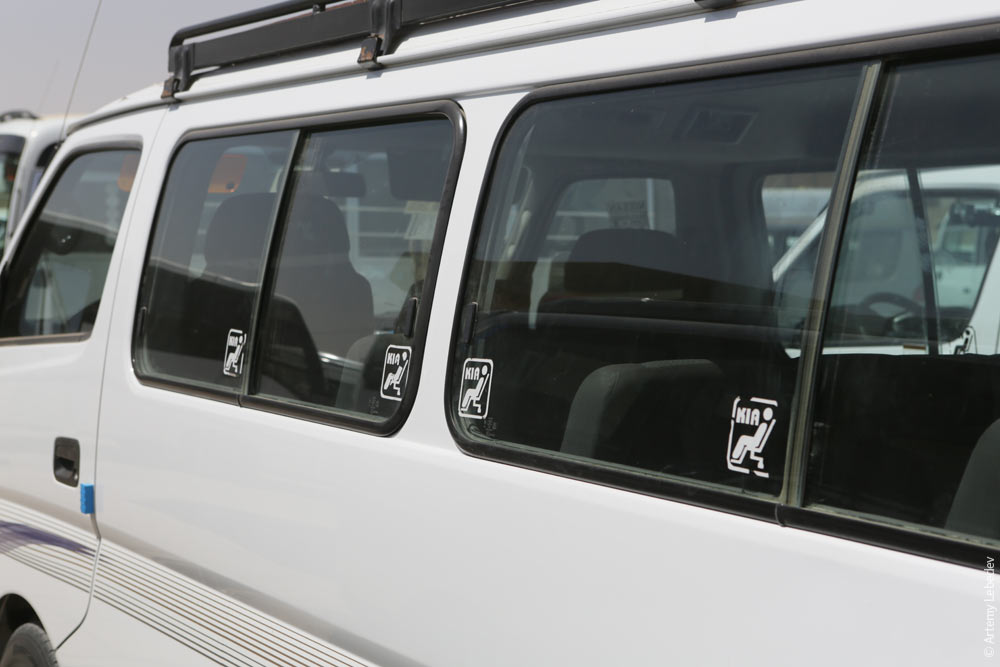 Taxi drivers like to stick their top lights on the hood of their car. 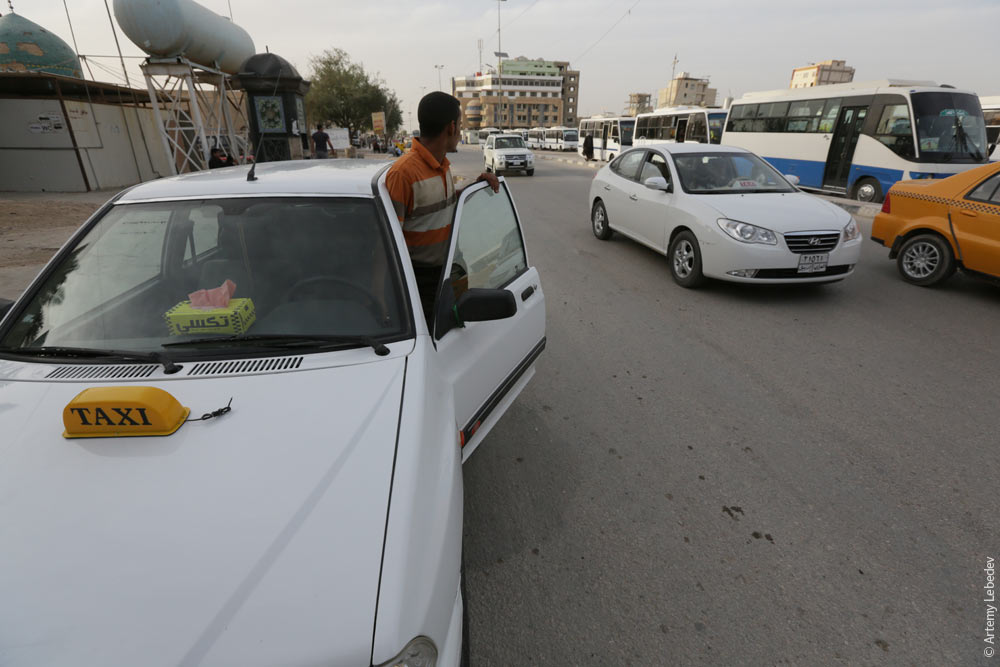 Driver’s licenses. 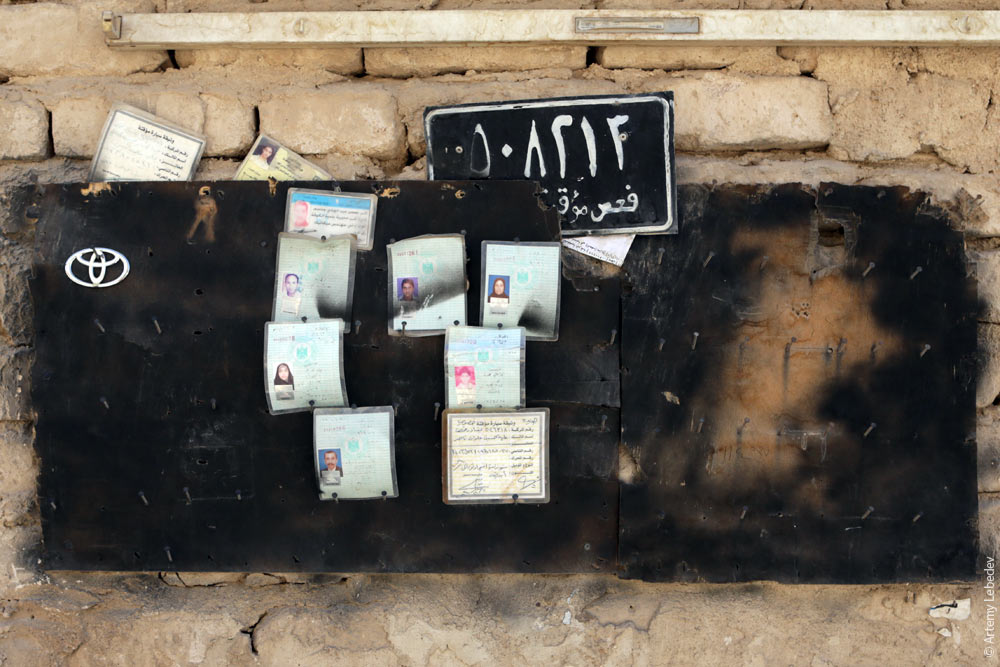 Sometimes the local carts are used in place of taxis for short distances. 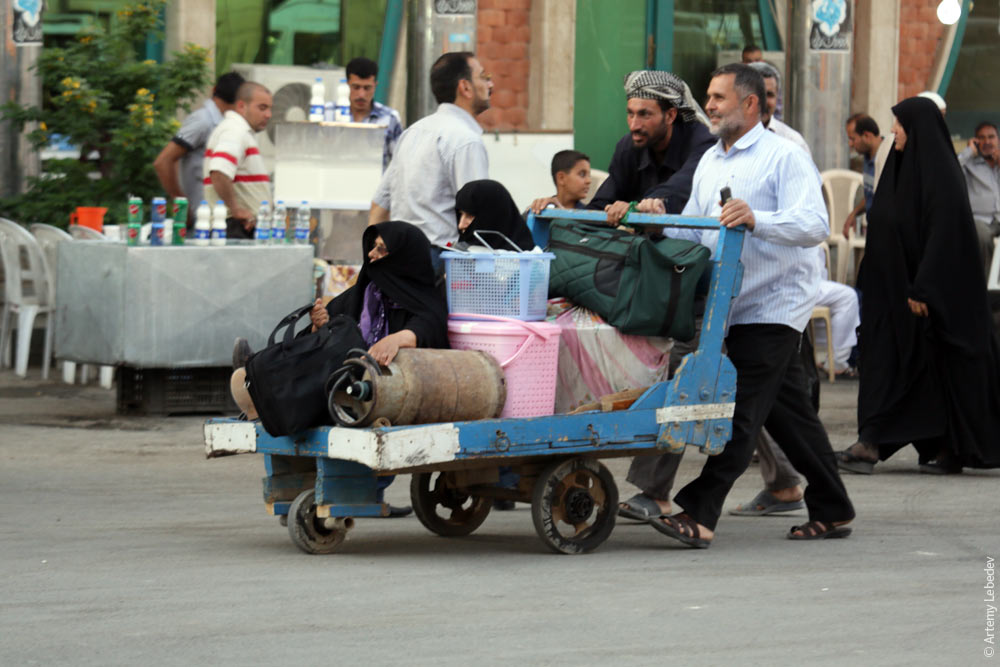 Although theoretically they’re meant for goods. They all have a standardized design: three wheels, a wooden handle. 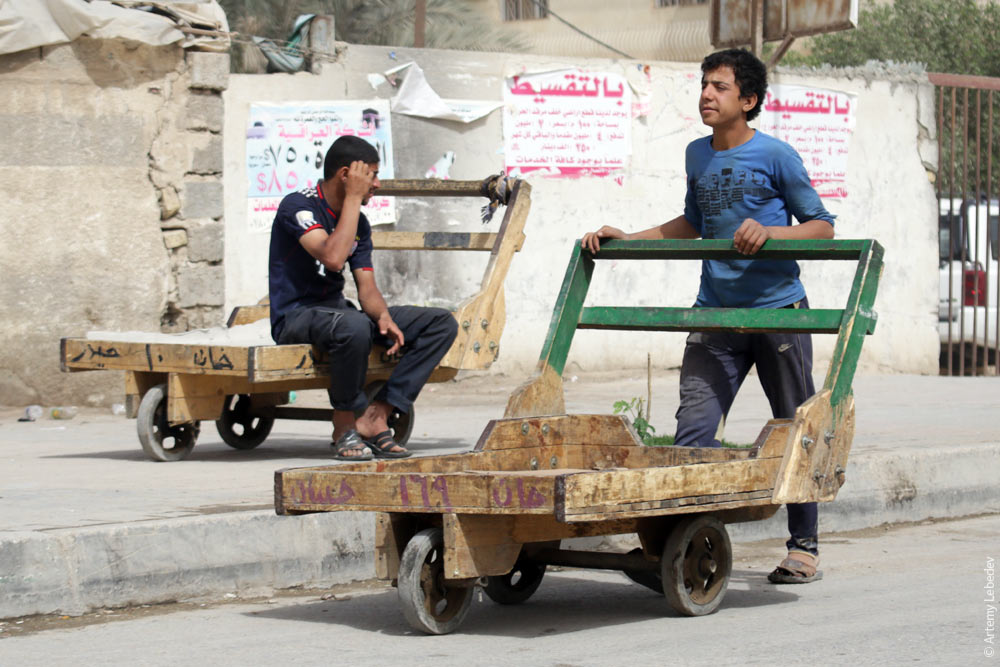 Roadside auto repair shops advertise their presence with muffler trees. 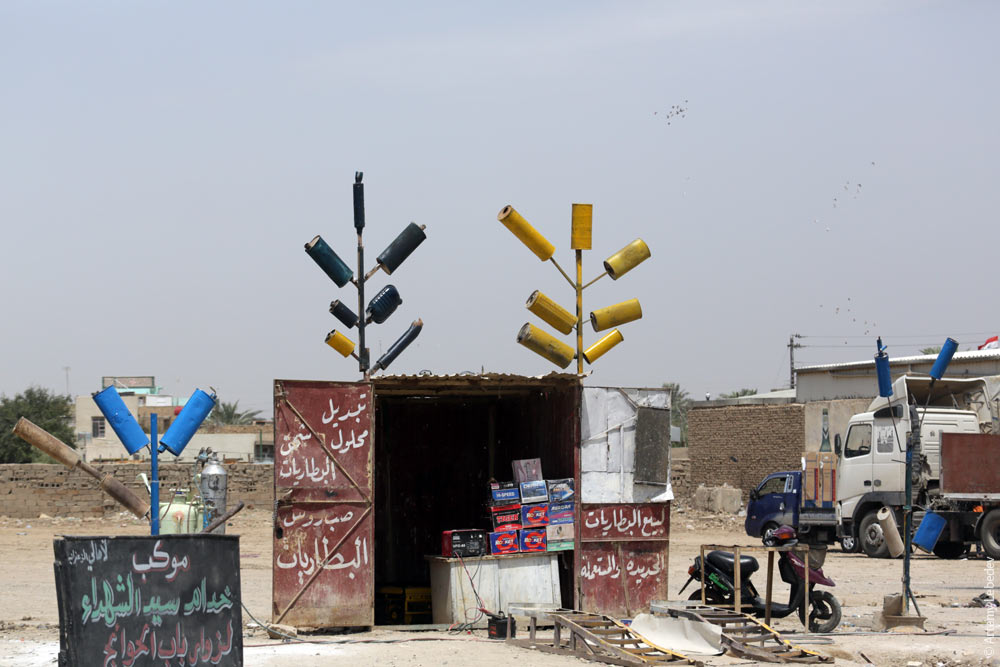 There are checkpoints everywhere. Which isn’t surprising: the Americans left only four months ago, there’s technically no war, but there are terrorists and a general Arab vigilance, which manifests itself in the fact that tens of thousands of able-bodied men aren’t occupied with anything constructive. Sometimes the checkpoints are 500 meters apart from one another, and you get stopped and screened at every single one, as if they can’t just pick up the phone and call the previous checkpoint to ask. 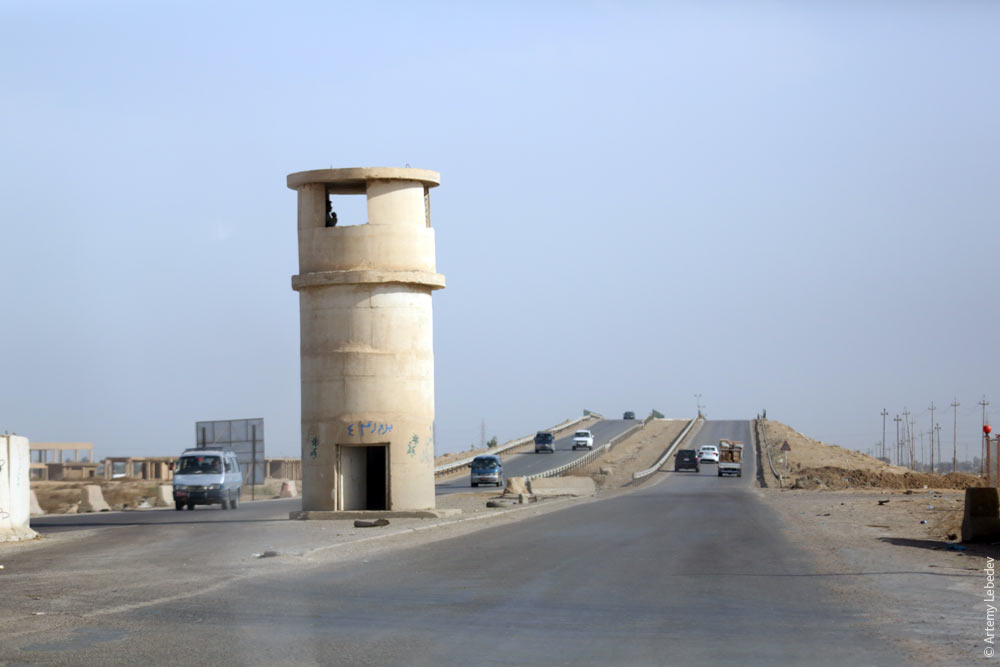 Every elevated location is used as a sniper’s nest. 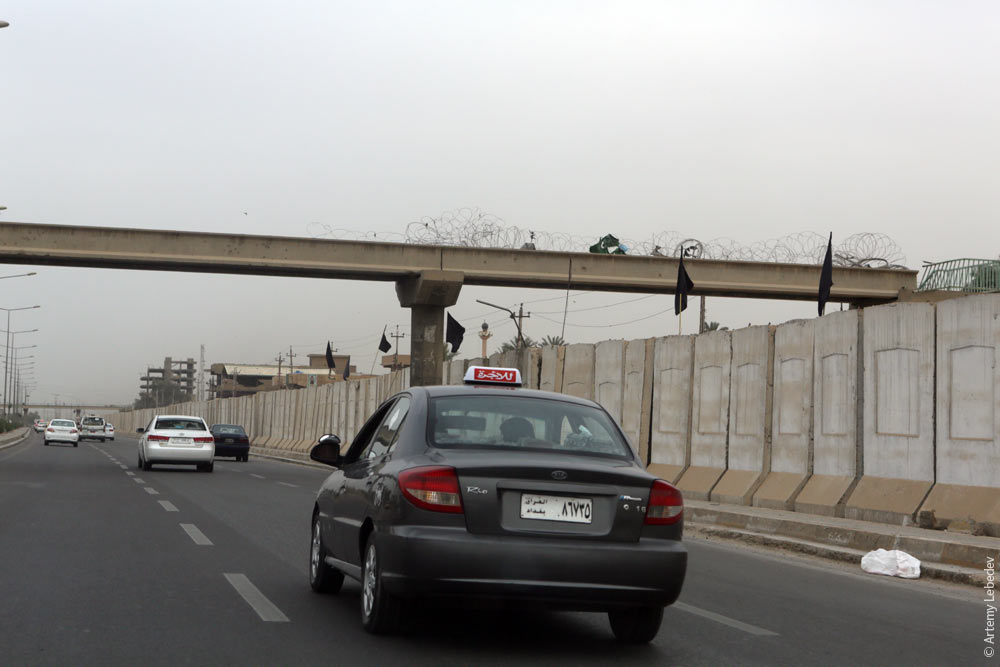 There are white and blue Humvees all over the place. You’ll usually find plastic chairs next to them, occupied by bored patrol guards killing time. Smoking, playing with their cell phones. 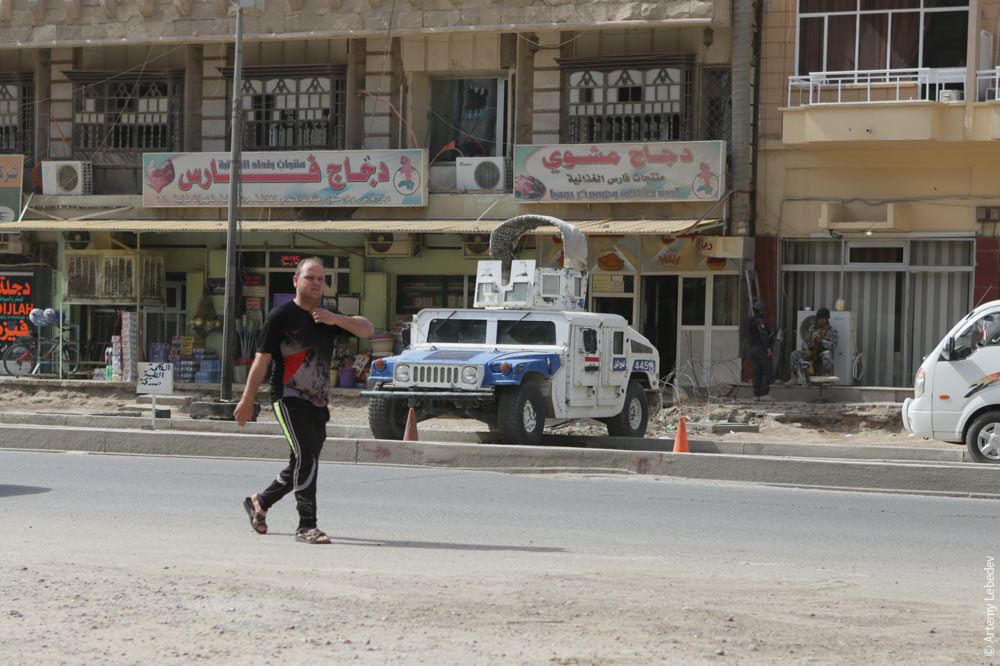 More or less important facilities can be identified by the additional concrete slab fence around them. The fences are ugly but functional—tanks won’t get past. 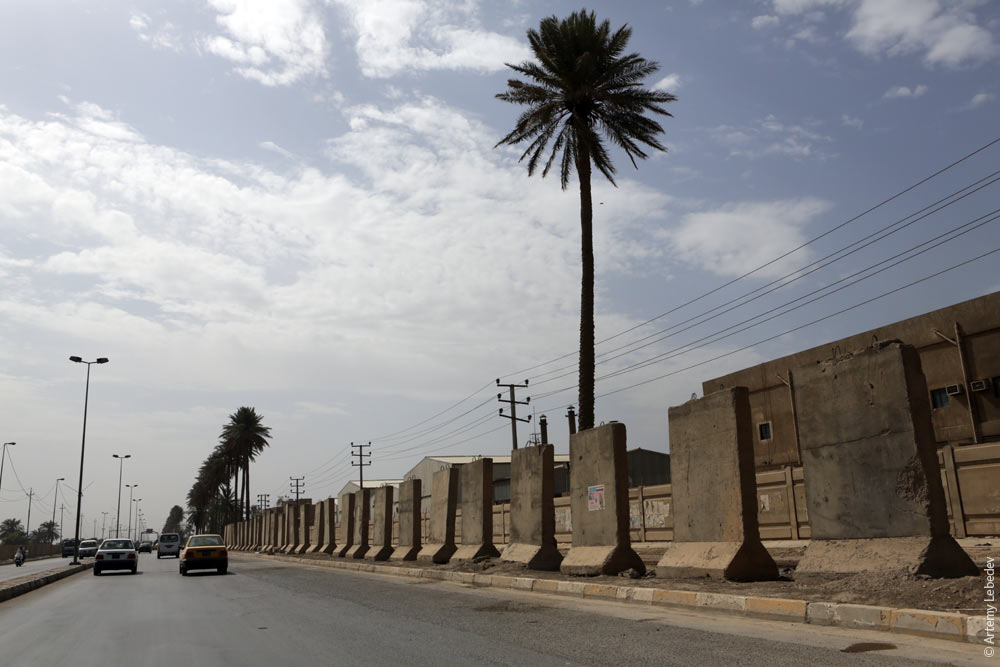 Iraqi soldiers are the nicest, most kind-hearted and compassionate soldiers in the world. Even though their uniform resembles that of US soldiers, they behave completely differently. The multitude of different uniforms, by the way, exceeded my ability to identify them. There’s military, police, special forces—you name it. Every day I encountered new kinds of men in uniform. And all of them were smiling and gladly posed for photos. Even the ones who detained me in Babylon for three hours for taking a photo of a government building fence. 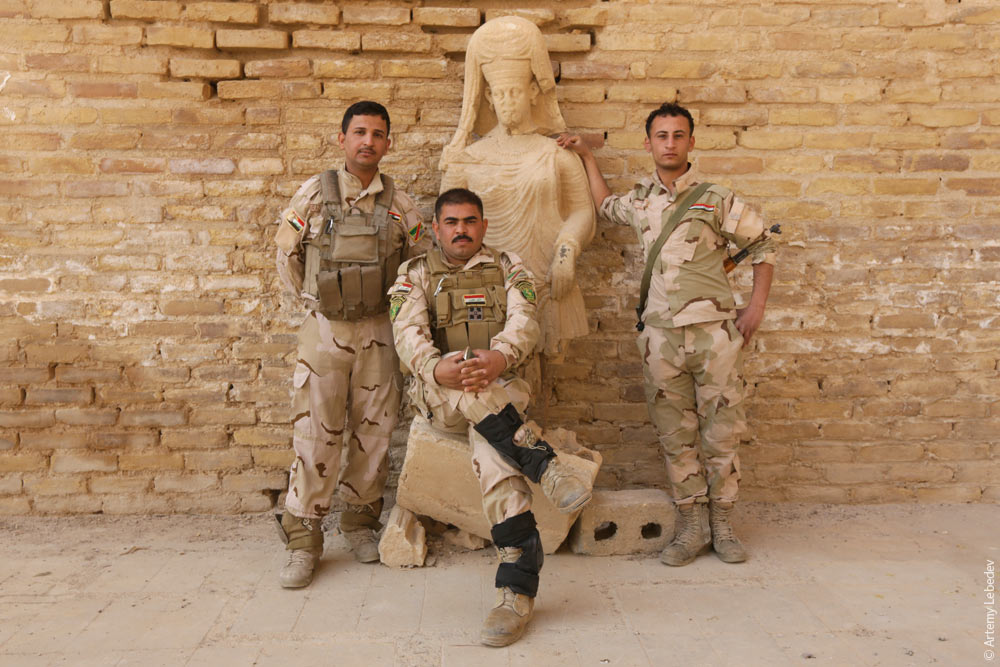 Imagine randomly walking down the street and coming across an Iraqi soldier planting a flower. It’s like you’ve been transported to the land of Utopia. 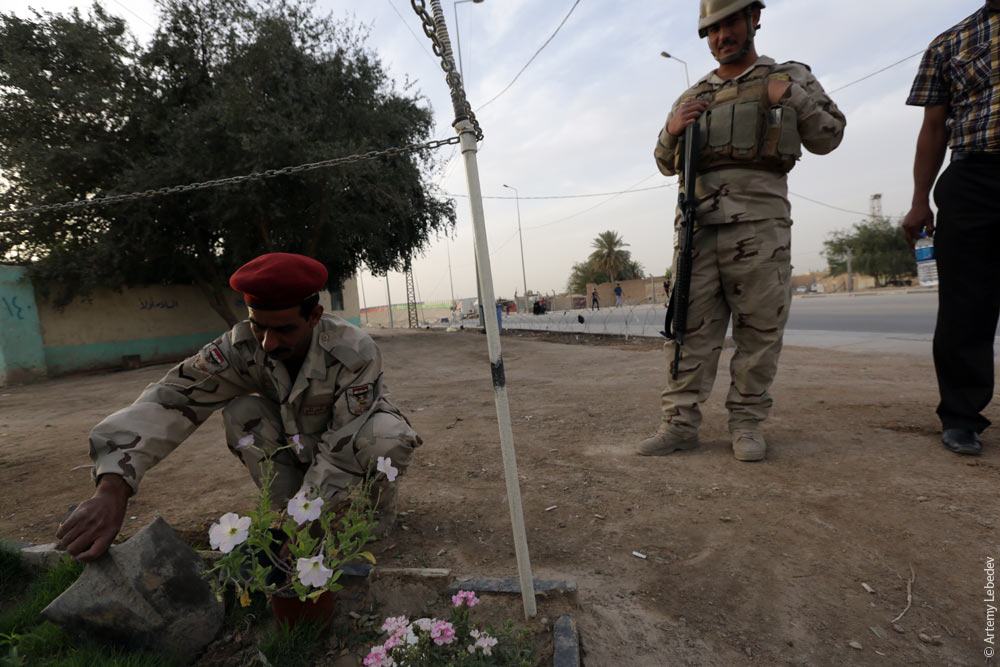 And to think that many people believe it’s scary here. 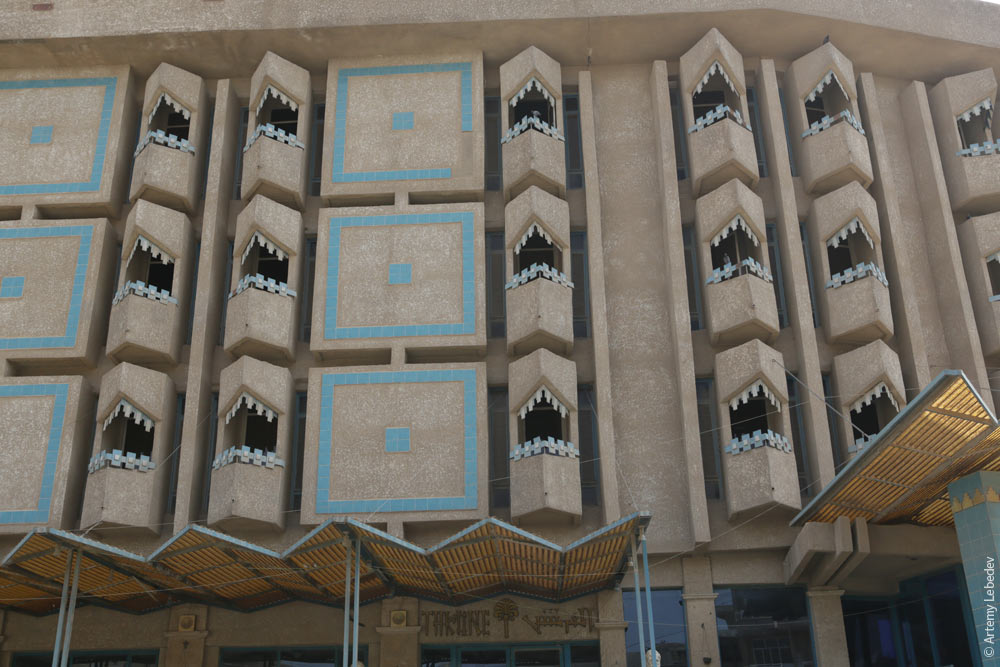 Nope, the only scary thing here is the energy-saving lamps. 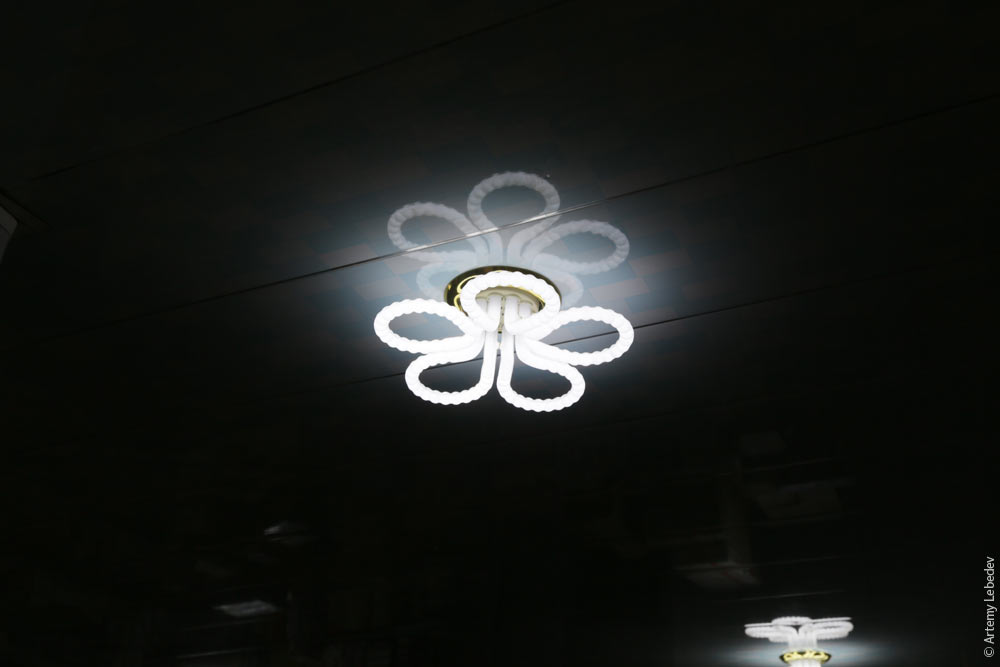 As is the custom in any eastern country, all appliances are displayed for sale right on the sidewalk, right in their boxes. 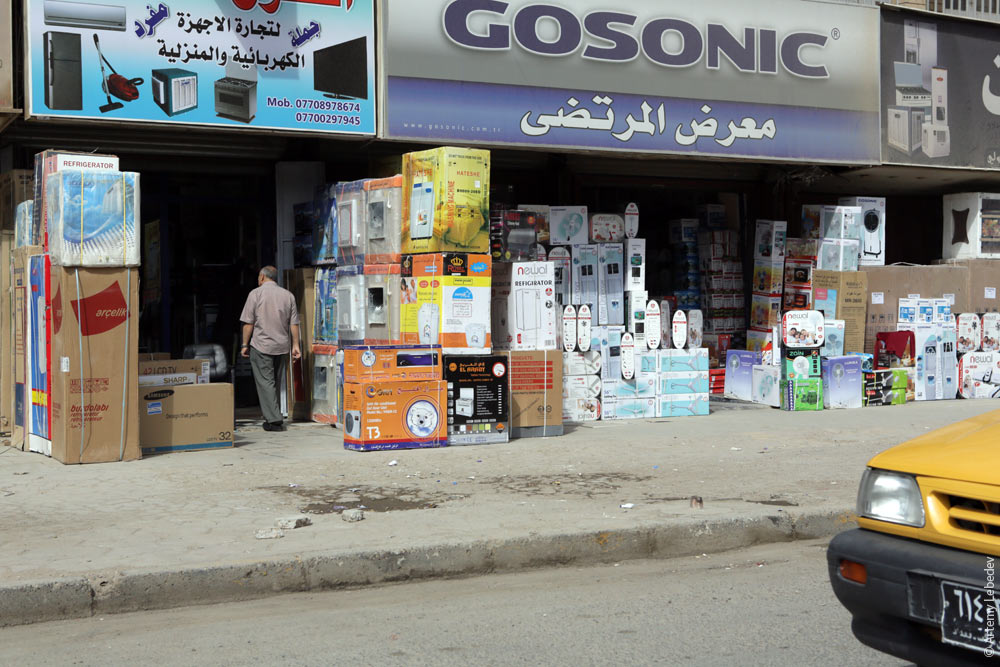 Posters and pieces of cloth with names of the recently deceased hang at busy intersections. 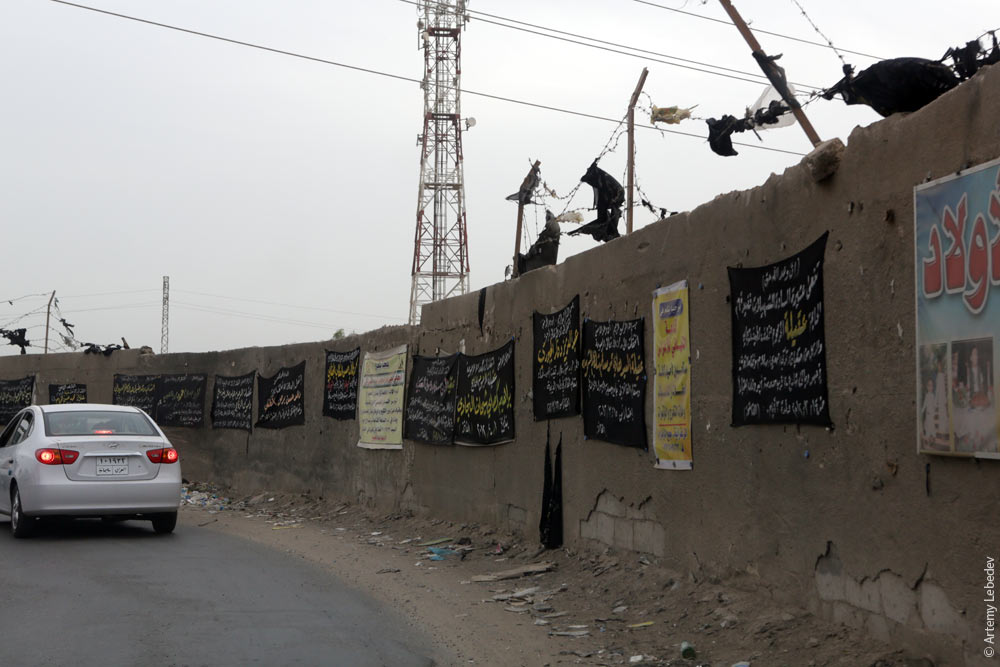 Almost all the street lamps have solar batteries with capacitors. 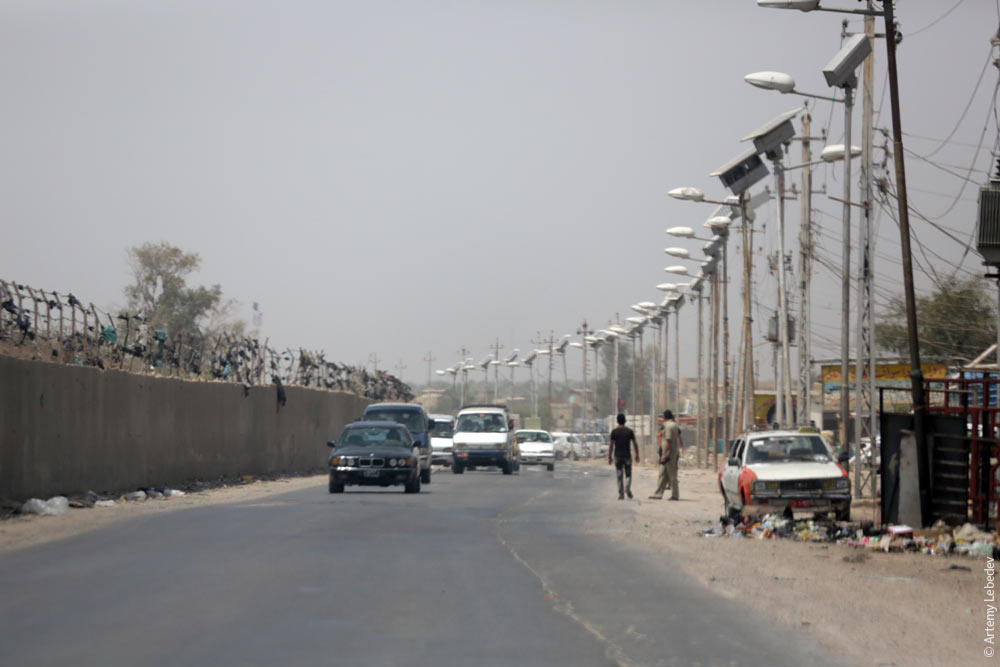 Little glasses of strong tea are sold on every corner. “A glass of tea” sounds almost exactly the same in the local parlance as it does in Russian. It’s not so hard to get by here, it turns out. 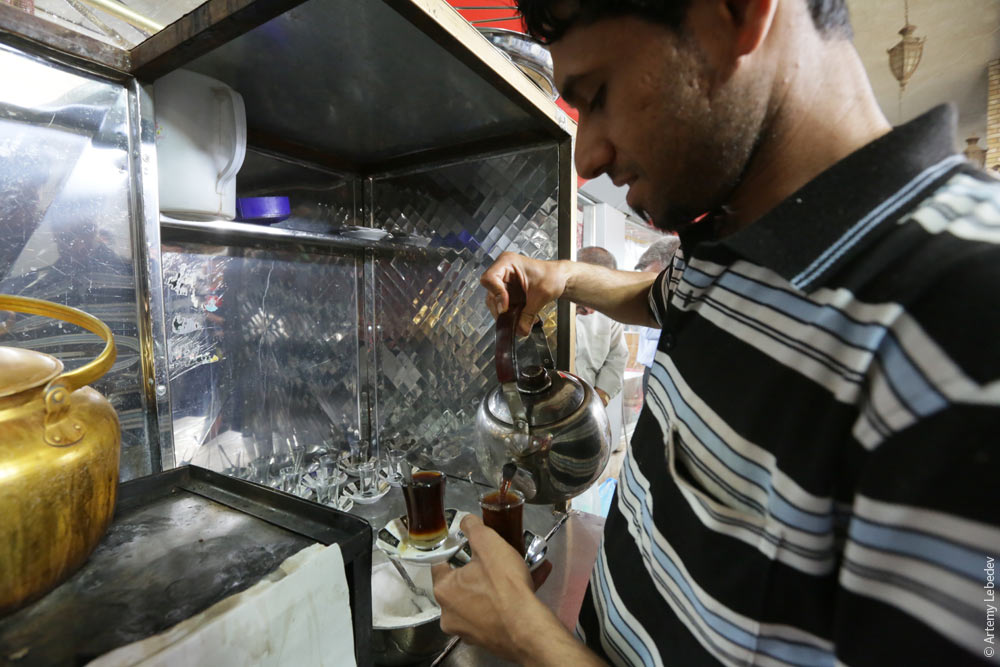 The nice thing about Arabic is that you can make any letter as long as you like. If you decide to write “Ru________________ssia,” you can do so without a problem. 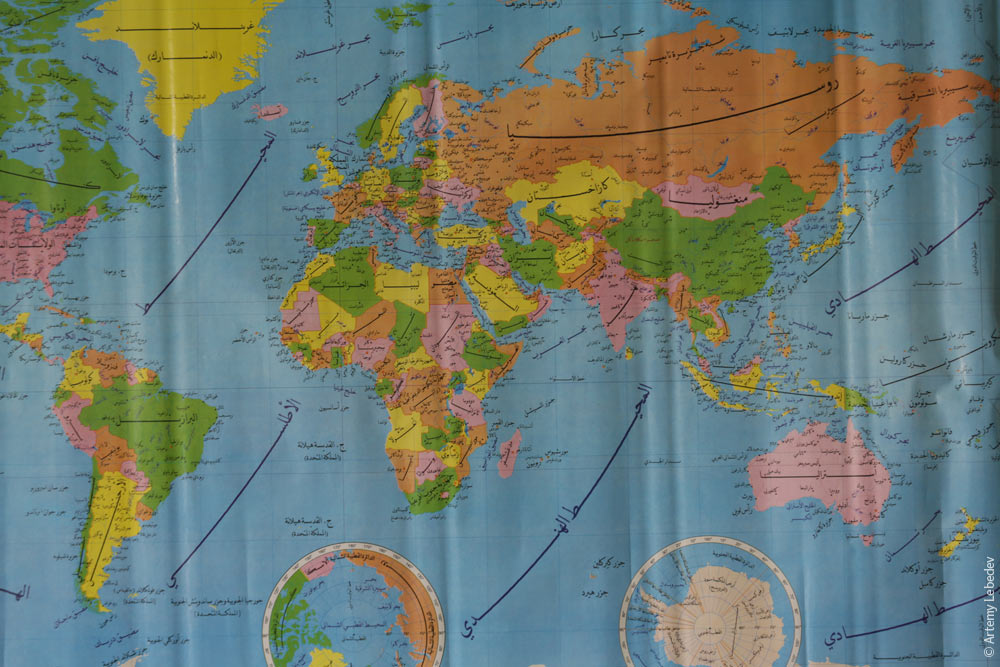 There was once a functioning postal service here, with French-style street post boxes. 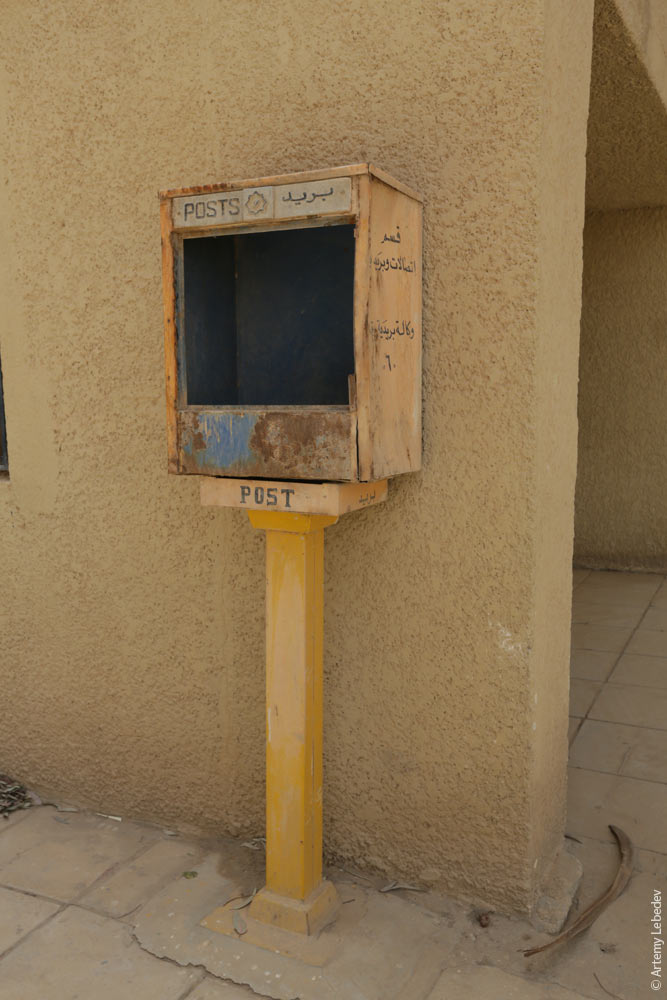 But those days are gone. The new post boxes are plain. And only found outside post offices. 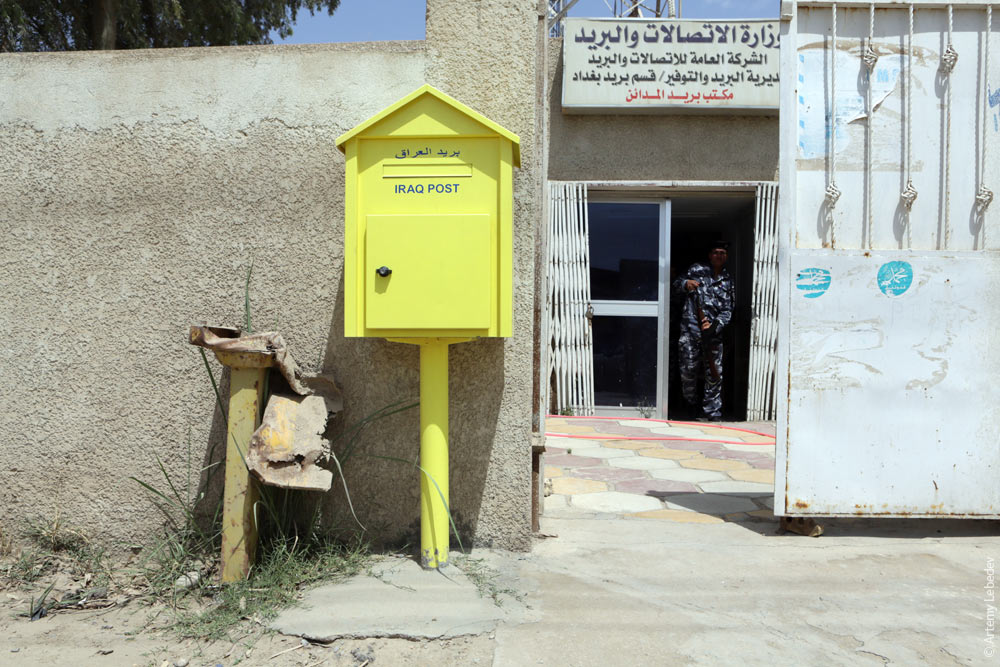 My guide claimed that were was presently no postal service in Iraq. But I convinced him to ask around. In the end, I even managed to buy some stamps. Selling the stamps required the combined efforts of five people, of course. 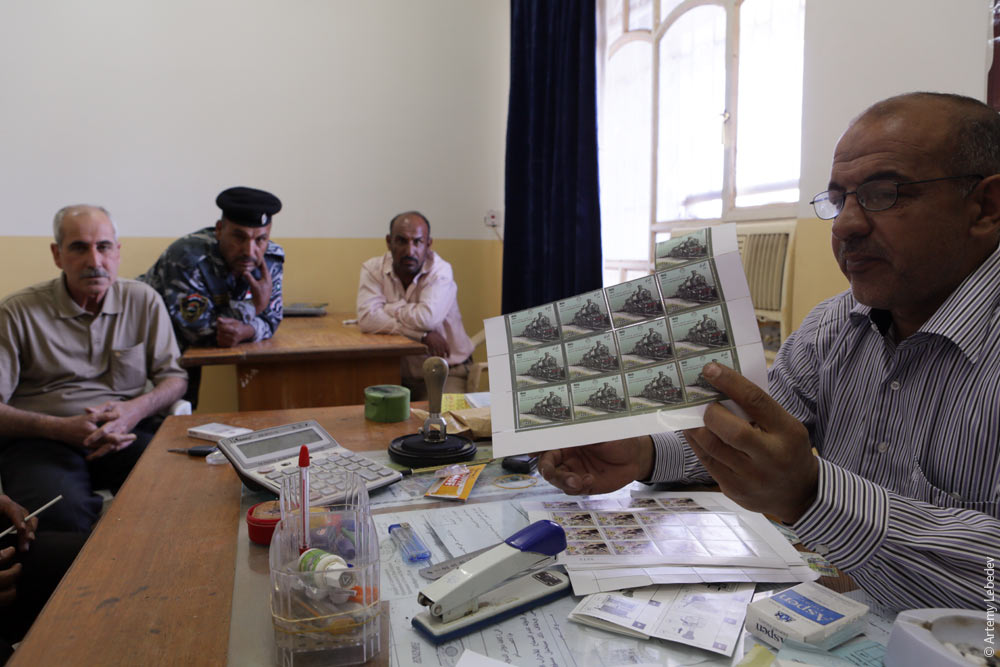 Iraq is the world’s leader in the number of aluminum doors still in use. Everyone else got over this craze in the 90s. 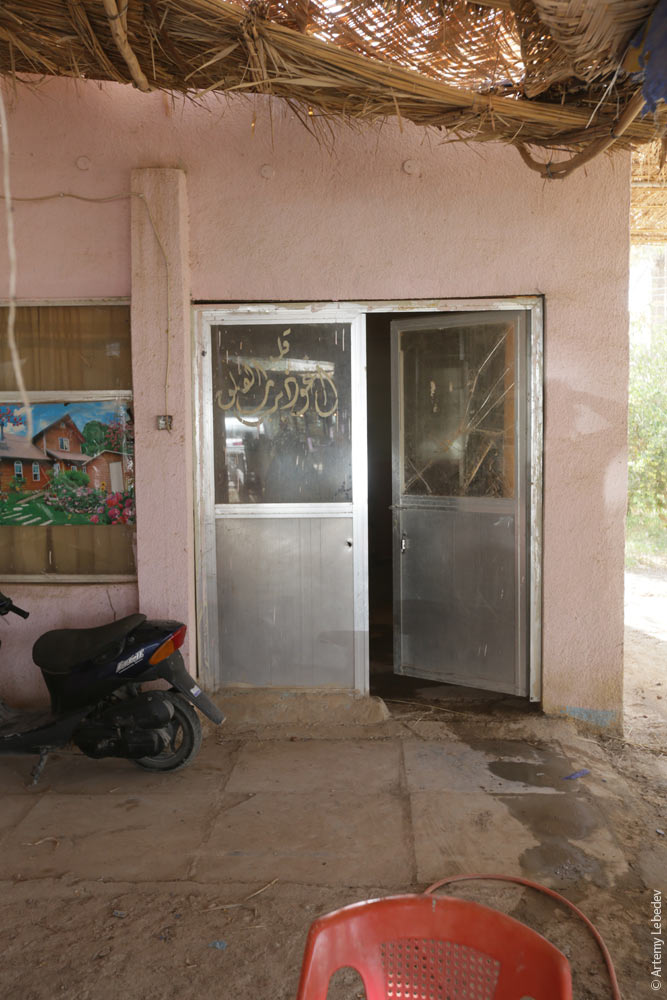 Imam Ali is the cousin and son-in-law of the prophet Muhammad, and one of the Shiites’ most beloved figures. Portraits of him, in which he almost always looks like Jesus and is almost always wearing eyeliner, hang on every corner and every wall. It once again makes you ponder the fact that depictions of God are forbidden in Islam, yet this is more than compensated for by depictions of saints or incumbent presidents (see everything from Kuwait and the UAE to Syria and Chechnya). 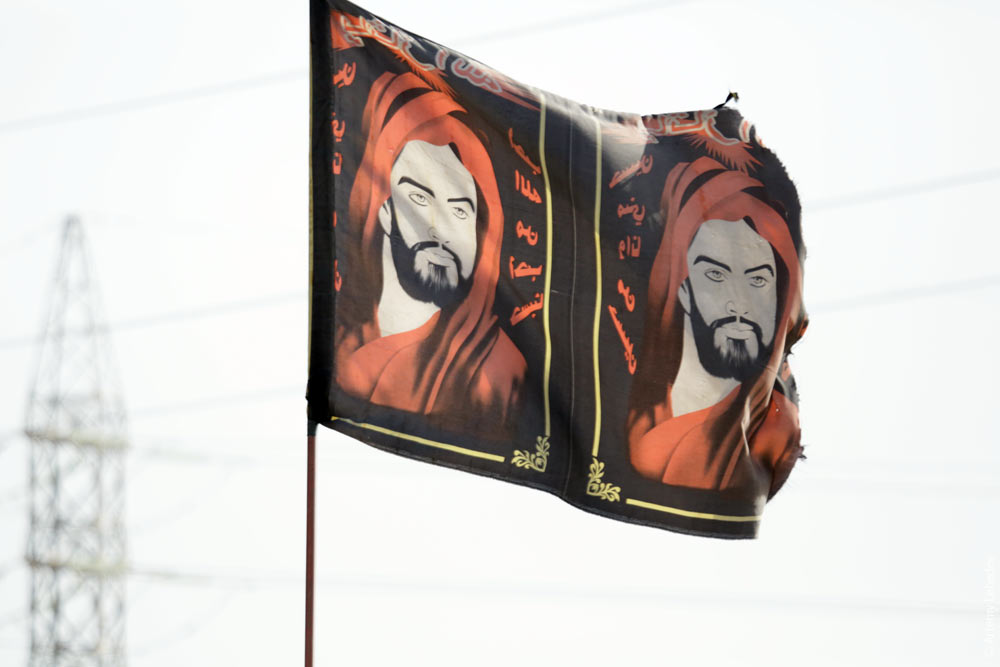 People often hang a blue ceramic flower, which looks like a valve handle, over the door of their house. It’s the equivalent of a horseshoe. 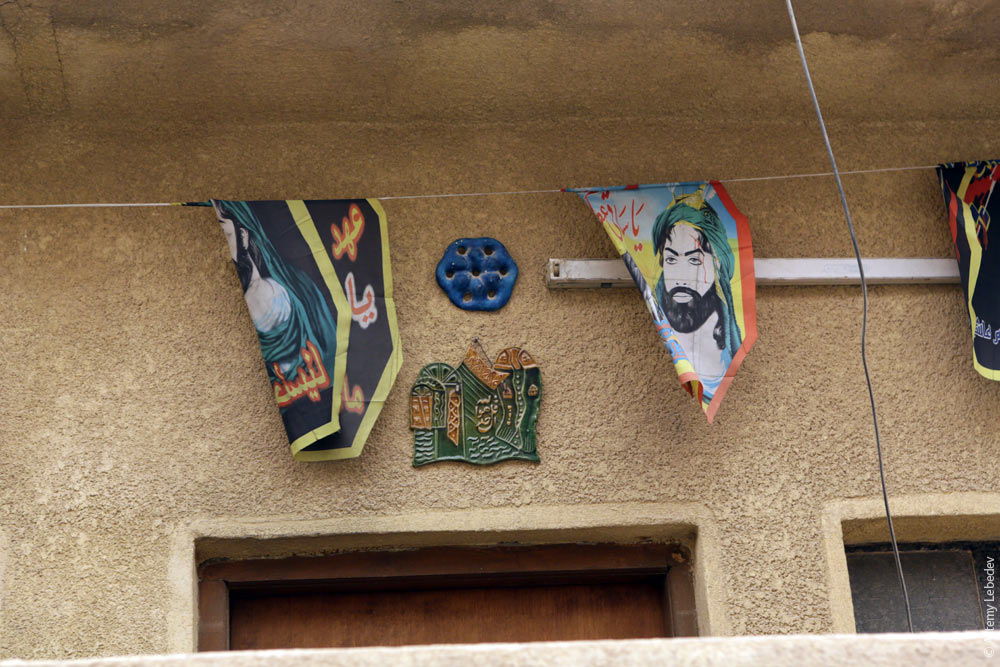 A British-style pedestrian crossing. 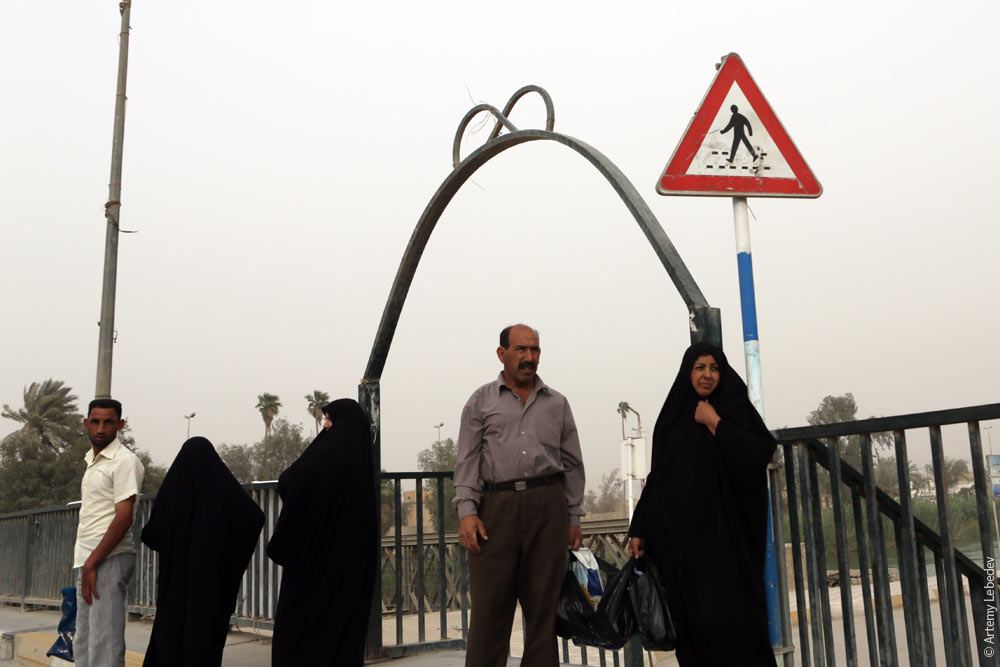 Children. 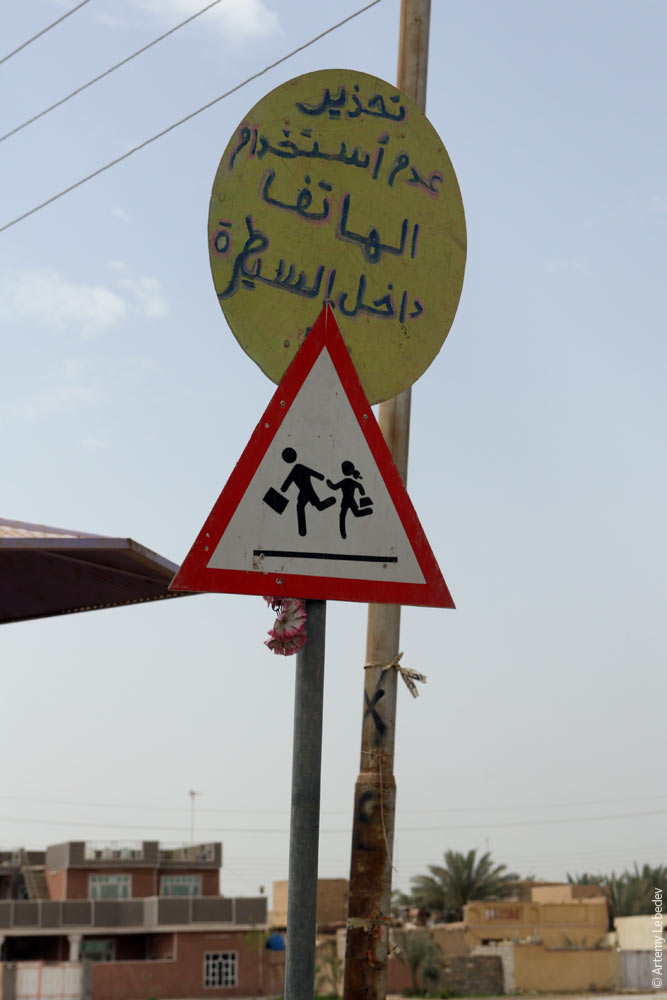 Only here would anyone put a shoe on the head of a mannequin in a window display (creating a semblance of the Russian cartoon character Gena the Crocodile). 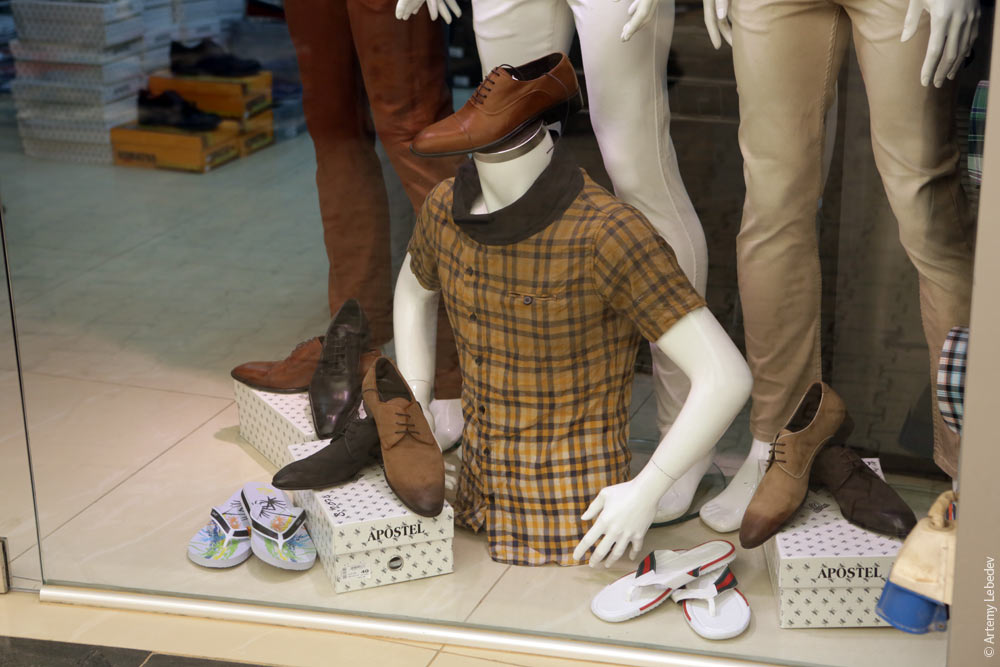 Only here would a boy with a pipe be considered a normal toy. 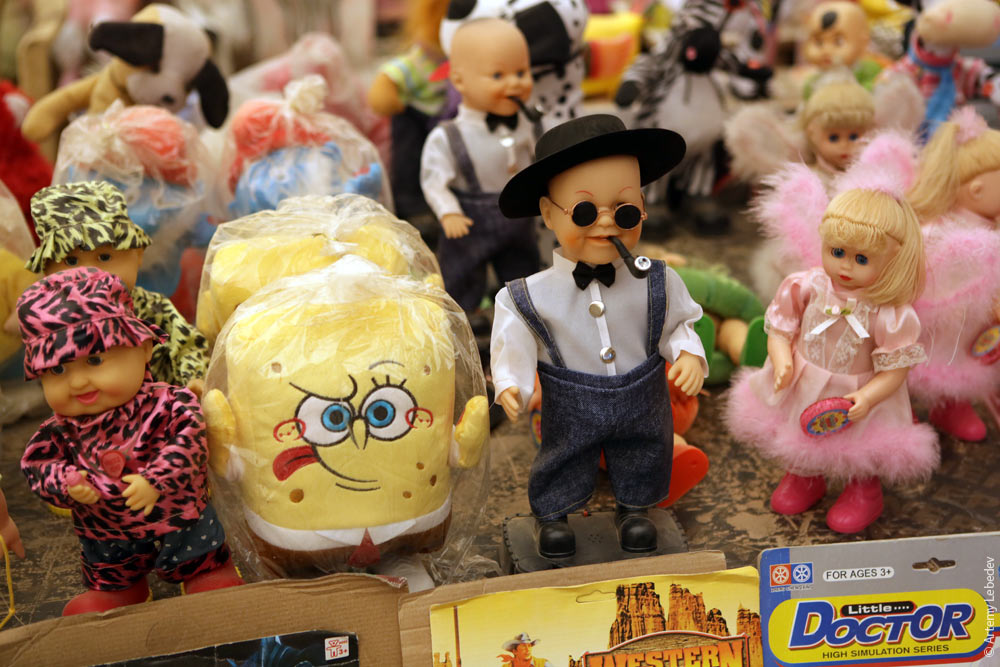 Only here would anyone customize a Volga. 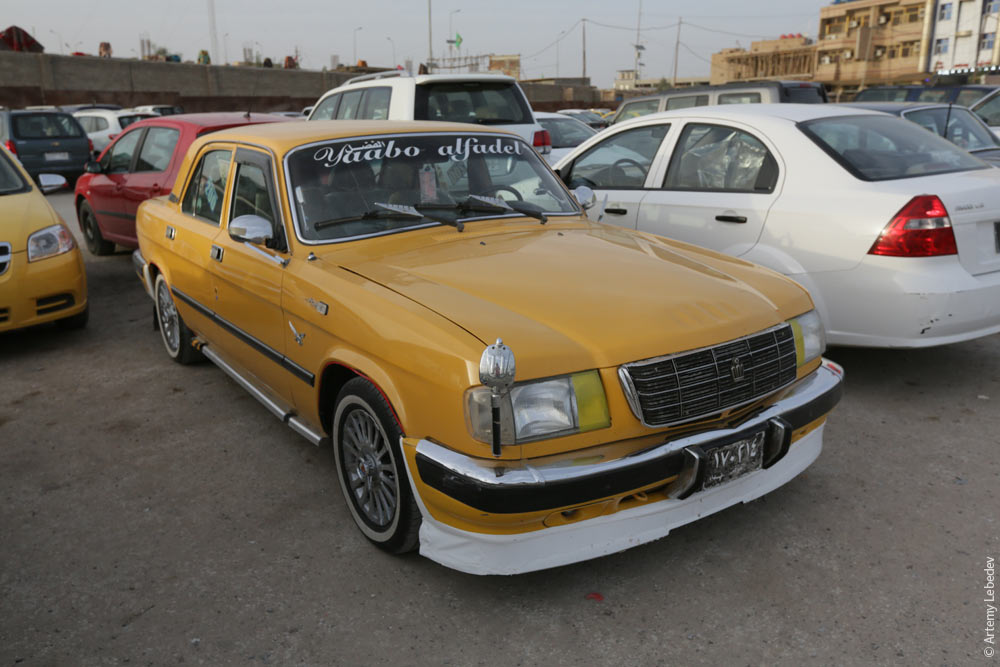 And only here would hotels have two types of toilets at the same time in their bathrooms. 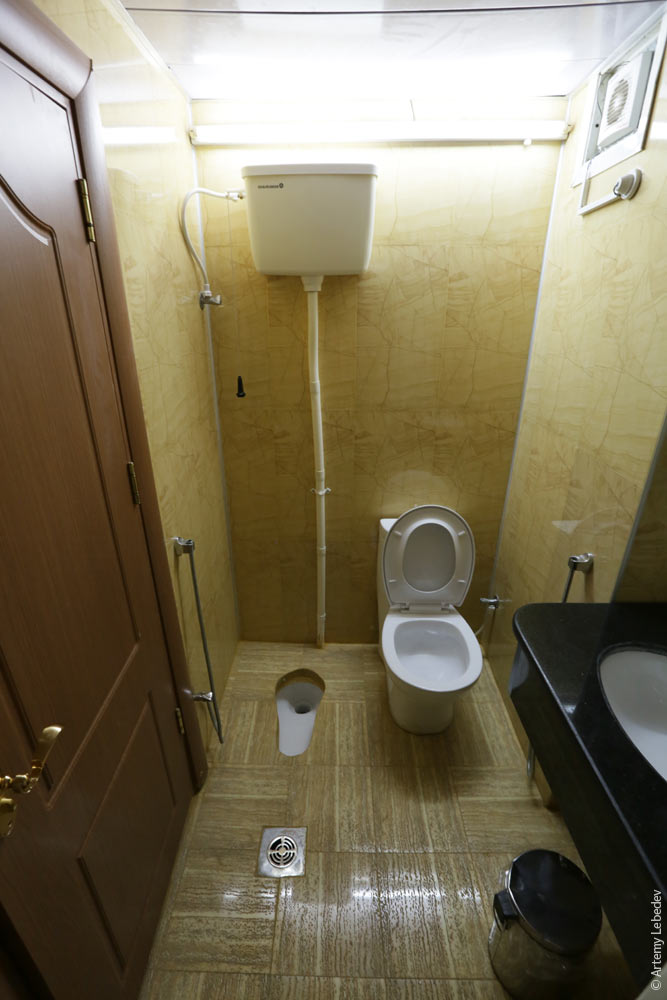 |